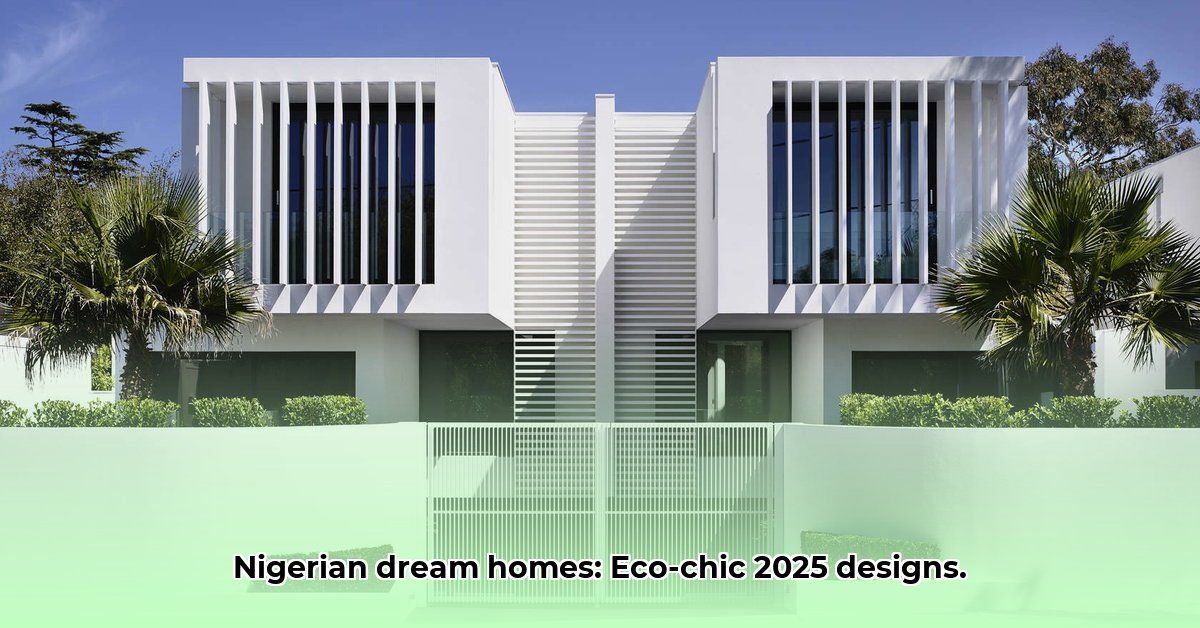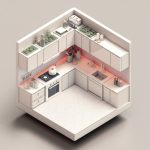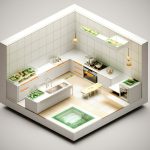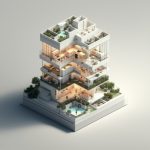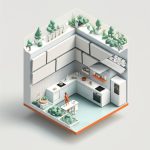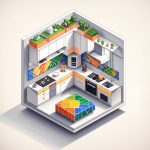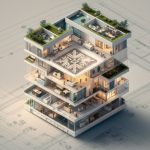Nigeria’s housing landscape is rapidly evolving, blending contemporary aesthetics with eco-conscious practices. This comprehensive guide provides valuable insights into modern home designs, associated costs, and a practical plan for constructing your dream residence. Featuring perspectives from leading Nigerian architects, we explore the latest trends, offering guidance on creating stylish, environmentally friendly homes exceeding expectations. Whether you’re a prospective buyer, investor, designer, or builder, this article equips you with the knowledge necessary to navigate Nigeria’s thriving housing market. Discover the fusion of modern aesthetics and sustainable living, creating homes for years to come. For more design inspiration, check out these modern house designs.
The Evolution of Modern House Designs in Nigeria
Nigeria’s architectural scene is witnessing a dynamic transformation, integrating traditional elements with innovative designs. The result is a diverse range of homes that prioritize aesthetics and functionality. Open floor plans, abundant natural light, and smart technologies optimize living spaces and improve energy efficiency. These designs cater to diverse income levels, ensuring modern living is accessible to a broader segment of the Nigerian population.
Embracing Sustainability: Eco-Friendly Homes
Sustainable living is no longer a trend but a necessity. Modern Nigerian homes are integrating eco-friendly features such as solar energy, rainwater harvesting systems, and locally sourced, sustainable building materials. While initial investments may be higher, long-term savings on utility bills and positive environmental impacts make these features highly worthwhile.
Smart Home Technology: Integration for Enhanced Living
Smart home technology enhances the Nigerian home experience, providing convenience, security, and energy efficiency. Control lighting, security systems, and appliances via smartphone, creating a connected and responsive living environment. However, cybersecurity is crucial. Strong passwords and regular software updates are essential to safeguard smart home networks and personal data. Recent studies indicate that smart homes can reduce energy consumption by up to 30%, providing significant environmental and financial benefits.
Climate-Conscious Design: Adapting to Nigeria’s Environment
Nigeria’s tropical climate necessitates designs prioritizing ventilation and insulation. Architects are blending traditional building techniques with modern methods to create homes balancing comfort and style. Properly designed homes stay cool during intense heat. Cultural integration is also essential. Incorporating Nigeria’s rich heritage into contemporary designs results in authentic spaces that reflect local identity.
Collaborative Contributions: Stakeholders in Modern Housing
The shift toward modern, sustainable homes involves various stakeholders. Homebuyers seek energy-efficient and tech-savvy houses. Architects create culturally relevant, eco-friendly designs. Developers invest in sustainable materials and technologies. The government sets building codes promoting sustainability and provides incentives for green building. Collective efforts drive the construction industry toward responsible and sustainable practices.
Practical Steps for a Greener Future: Recommendations
To promote sustainability:
- Homebuyers: Prioritize energy-efficient features, explore financing options for eco-upgrades, and seek certifications for sound building practices.
- Architects: Prioritize sustainable designs, utilizing local materials whenever possible.
- Developers: Invest in training on sustainable building practices, promoting eco-friendly projects.
- Government: Streamline permit processes for sustainable projects, offering tax breaks for green initiatives.
Sustainable Material Selection: Weighing Options
Selecting the right building materials is imperative, especially for sustainability.
| Material | Pros | Cons |
|---|---|---|
| Locally-Sourced Timber | Sustainable, cost-effective, aesthetically pleasing, and readily available. | Susceptible to insect damage, requires treatment, and potential deforestation concerns (if unsustainably sourced). |
| Recycled Materials | Environmentally friendly and can be cost-effective. | Availability may vary, and quality control can be a challenge. |
| Concrete | Durable and versatile. | High carbon footprint, requires skilled labor, and energy-intensive during production. |
Future Trends in Nigerian Homes: Innovations on the Horizon
The future of modern Nigerian homes is promising. As the economy grows, demand will rise for high-quality, sustainable housing. Balancing technology with time-honored techniques, celebrating Nigerian culture, and protecting the environment will drive innovation. The result will be stunning, eco-conscious homes reflecting Nigeria’s vibrant energy. Ongoing research into sustainable practices will further refine designs.
A Practical Guide to Choosing Eco-Friendly Materials
Key Points:
- Traditional materials (laterite, bamboo, clay) cut costs (up to 70%) and provide insulation.
- Recycled plastic bricks and steel offer sustainable, affordable alternatives.
- Modern designs preserve cultural heritage and support local artisans.
- Material selection hinges on Nigeria’s diverse climate zones.
- Government incentives and green construction standards speed adoption.
Embracing Sustainability
Creating a modern home balances aesthetics with environmental responsibility. How to choose eco-friendly materials effectively? Let’s explore options.
Traditional Legacy
Nigeria has a history of sustainable building. Materials like laterite, bamboo, and clay offer thermal insulation. Producing them requires less energy, reducing your footprint. Using them supports local artisans and preserves heritage.
Innovative Options
Recycled plastic bricks offer a durable and strong alternative. Recycled steel reduces waste.
Balancing Aesthetics and Functionality
Sustainable building blends functionality and style. Maximize natural light and ventilation to reduce energy needs. Bamboo flooring and clay-plastered walls complement modern fixtures. Homes built with eco-friendly materials can increase property value by up to 15%.
Making Informed Choices
Consider:
- Climate: Nigeria’s climate requires region-specific materials.
- Cost: Evaluate upfront and long-term costs.
- Availability: Ensure reliable sourcing.
- Durability: Choose lasting materials.
Collaboration
Architects, builders, suppliers, and the government play crucial roles. Government incentives accelerate adoption. Clearer building codes would also help.
The Path Forward
Designing a sustainable home offers advantages. Your home reflects environmental responsibility.
- White On White Kitchen Backsplash: Is It Timeless? - November 20, 2025
- Backsplash Colors for White Cabinets: Find Your Perfect Match - November 19, 2025
- Backsplash Ideas for White Cabinets: Find Your Perfect Style - November 18, 2025
